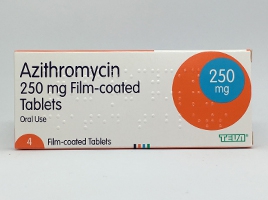How we use cookies
This policy is intended to provide you with clear and relevant information about the use of cookies on our web site.
When you access one of our sites we collect information about your visit to the site, such as which pages you visit, how often you visit, the length of time for which you visit and which competitions or message boards you enter.
What is a cookie?
A cookie is a small text file that may be placed on your device when you visit our sites. When you next visit our sites the cookie allows us to distinguish you from other users.
There are two broad categories of cookies:
Persistent cookies: Persistent cookies remain on your device until deleted manually or automatically.
Session cookies: Session cookies remain on your device until you close your browser when they are automatically deleted.
Cookies we use and why we use them
Essential cookies: Essential cookies are technical cookies that are required for the operation of our sites. Without essential cookies our sites can't operate properly. Essential cookies include, for example, cookies that enable you to log into secure areas.
Performance cookies: Performance cookies allow us to recognise and count the number of visitors to our sites and to see how visitors move around them. This helps us to improve the way our sites work by enabling us to tailor our sites to the way visitors use them. The information we collect from performance cookies is aggregated which means that we cannot identify you from it.
Experience cookies: Experience cookies allow our sites to remember the choices you make. Our sites use experience cookies to provide you with enhanced and personalised features. For example, we use information collected through what are known as 'web-analytic' cookies to compare the choices you make to those of our other customers so that we can learn from those choices.
Information collected by experience cookies cannot track your browsing activity when you leave our sites to browse other sites.
Marketing cookies: Marketing cookies record your visits to our sites, the pages you have visited and the links you have followed. We use this information to make our sites and the advertising displayed on them more relevant to your interests. For example sometimes we use marketing cookies to limit the number of times that you see an advert. Sometimes we share information about your browsing activity, (which we have collected from cookies), with our advertising partners. They may use this information to advertise products, which may interest you, on other sites.
Change your Browser Settings
You can choose how cookies are handled by your device via your browser settings. The most popular browsers allow users to:
- see what cookies you've got and delete them individually
- accept or block either all cookies or cookies from particular sites
- notify you when a cookie is issued,
- delete all cookies when you close your browser
Warning: Be aware that if you choose not to receive cookies at any time, the website may not function properly and certain services will not be provided, spoiling your experience of content. other websites as well. For example preferences may be lost, which could include any cookie opt outs you have exercised. Each browser is different, so check the "Help" menu of your browser to learn how to change your cookie preferences.
What is a browser?
A browser is an application that allows you to surf the internet. The most common browsers are Chrome, Internet Explorer, Firefox and Safari. Most browsers are secure and offer quick and easy ways to delete information like cookies.



